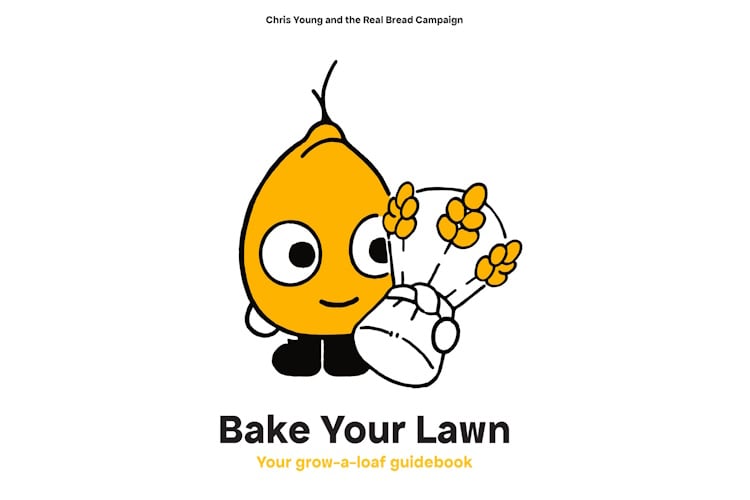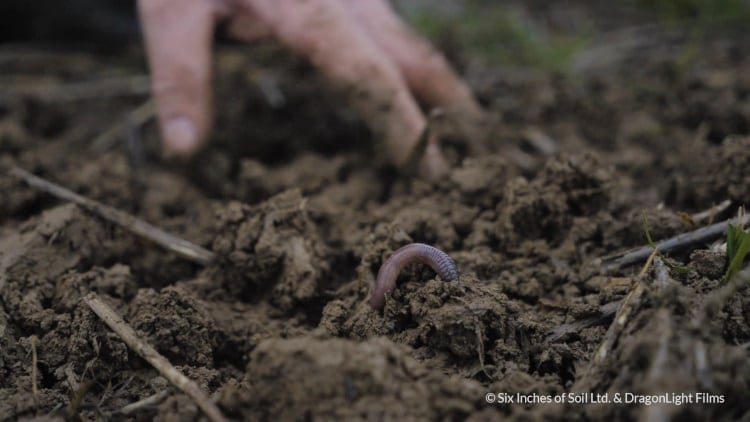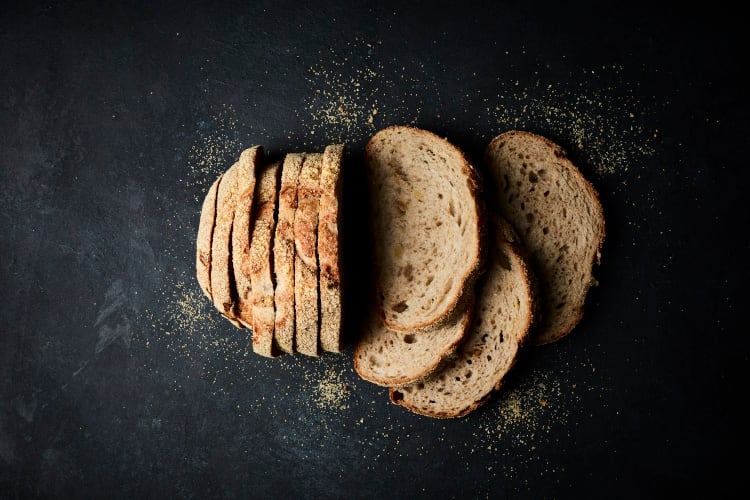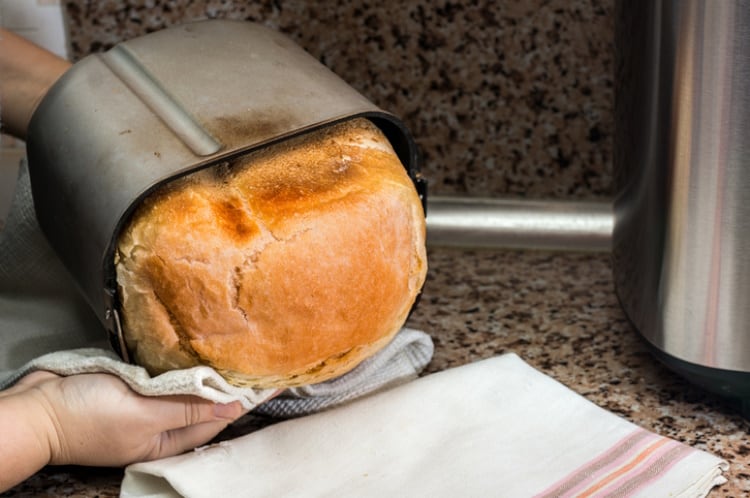Suitable for farmers, traditional millers and Real Bread bakers who do community outreach work, the book includes guidance on micro-scale sowing, growing, harvesting, threshing, winnowing and milling.
But essentially, it’s designed to guide teachers, (grand)parents and guardians to help kids embark on their own hands-on, soil-to-slice journey. Starting with as little as 15g of wheat seeds and a square metre of earth, children will discover for themselves how Real Bread starts in a field, not a factory.
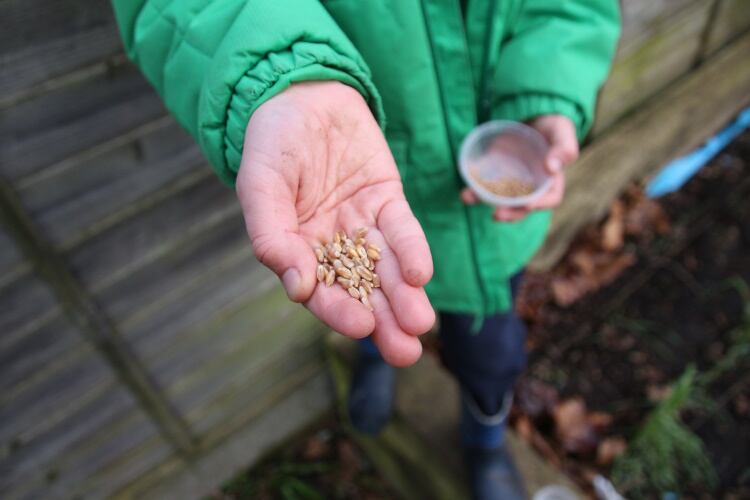
Behind the book
Bake Your Lawn was written by Real Bread Campaign coordinator Chris Young with input from many within the Campaign’s extensive network of ardent advocates. Lara Durham, a student at the London College of Communication, University of the Arts, was commissioned to do the illustrations.
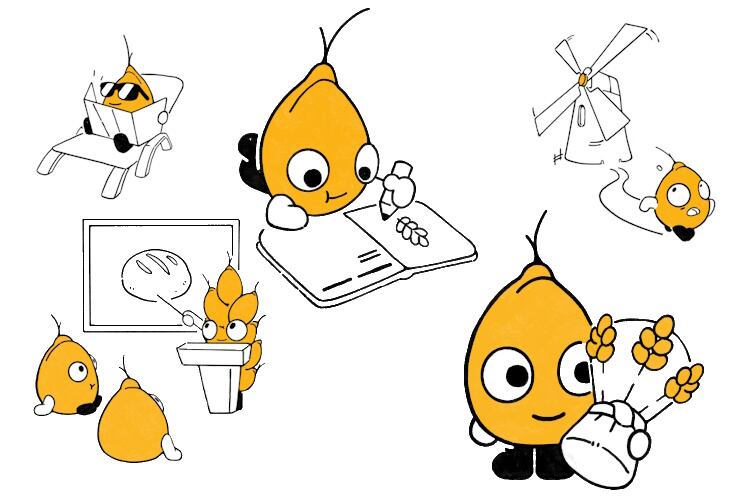
It’s the third book in the Campaign’s arsenal, following ‘Slow Dough: Real Bread’ and ‘Knead to Know … more’.
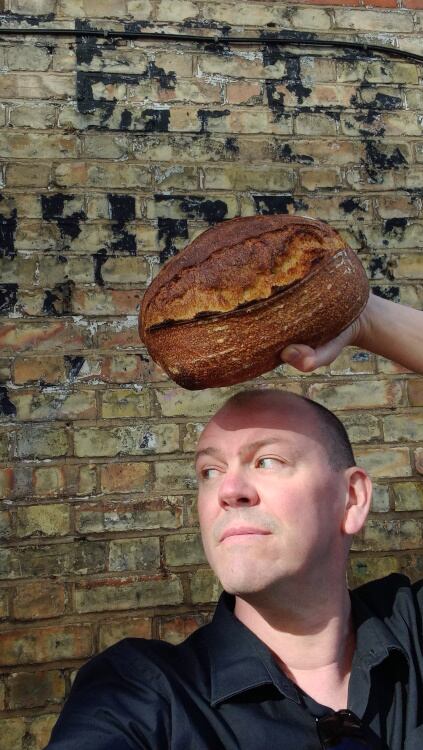
This book builds on the Bake Your Lawn and Lessons in Loaf projects run by the Campaign between 2010 to 2012. The initiatives were designed to encourage schoolchildren follow bread’s journey from crop to crust and met with much success.
For example, South Haringey Junior School in London planted their wheat in April and harvested it a few months later.
“In October, we threshed the wheat, winnowed it and milled it in Mr Banham’s coffee grinder. On 14 October 14, we baked our flour as bread and at it. Delicious!”
Equal enthusiasm was felt by the pupils of Berkswich Primary School in Stafford.
“We harvested a reasonable size sheaf, threshed it, ground it up and ended up with 400g of flour – just enough for a loaf – and what a loaf it is. The children have a newfound admiration for farmers and bakers, but more importantly were blown away by the process of making and eating their own bread. Brilliant campaign, we loved the experience.”
The inspiration
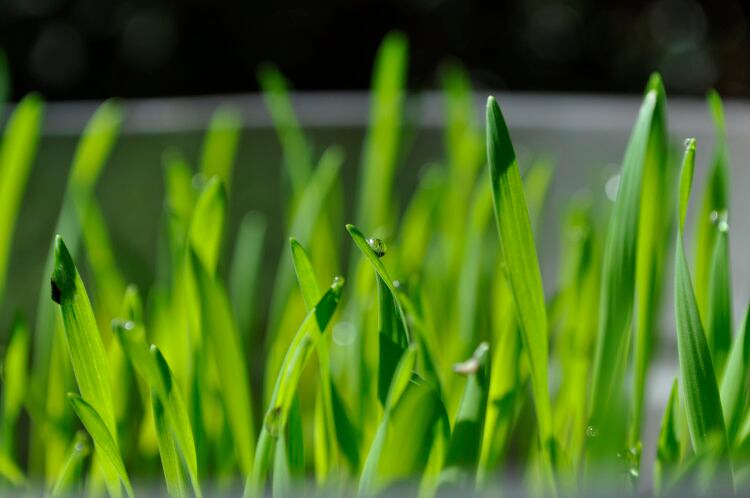
‘Bake your lawn’ was coined by Real Bread Campaign’s cofounder Andrew Whitley.
Having founded his organic bakery The Village Bakery Melmerby – using sourdough starter culture to raise millions of loaves – he wanted to take the concept further, and long before was trendy, turned his allotment into a mini wheatfield, from which he produced his own Real Bread.
Whitley is director of Bread Matters Ltd – which has more than four decades of campaigning for better bread under its belt – launching the Flour to the People project during the pandemic. Following his soil-to-slice ethos, Whitley is the figurehead of the UK’s non-commodity grain revival through his work with Bread For Good Community Benefit Society (which trades as Scotland The Bread), which he cofounded with his late wife Veronica Burke in 2012.
Whitley is also the author of the seminal ‘Bread Matters’ and the bestselling ‘DO Sourdough’.
Breaking it down
‘Bake Your Lawn’ delves into everything from how to get your hands on wheat seeds to planting and caring for your crop before marching into the harvesting, threshing and winnowing processes. It also looks into maturing flour and how to turn it into the tastiest Real Bread ever.
Excerpts from the book
The scientific name for common (aka modern or bread) wheat, which is the stuff most often used to make bread (plus biscuits, cakes, pastry and whatnot) in the UK, is Triticum aestivum. There are umpteen cultivars, or varieties, of T. aestivum. Each differs in yield (how much grain the plant from each seed will produce), protein and vitamin content, cooking qualities (e.g. whether better for bread or cakes), flavour and so on…
Health and safety time again: supervise children (and anyone else who needs an eye keeping on them) at all times for all of the activities in this chapter. Whatever you use to harvest your wheat, it will be sharp; during threshing, hard little grains can fly off in all directions - including towards eyes; and wheat husks can blow off to places they’re not wanted. As well as old outdoor clothing, it’s advisable to wear protective gear, such as goggles, gardening gloves and boots...
Farmers use a variety of equipment and tests to know when their wheat is ready, with just the right amount of moisture and protein at the peak of its bread-making potential. Without all that kit, you’ll need to rely on your senses. In simple terms, when the stalks and ears have all turned from green to a golden or a dusty, pale brown colour, it’s probably time to gather them in. A traditional way to be more certain if your wheat is ready to harvest is to take an ear [and] roll it between your hands …
Field notes include stories from grow-a-loaf school projects, wheat diaries from folk who took part in the Campaign’s original projects, and blueprints for simple experiments to try at home or in school.
“Real Bread is an absolute gift of a topic to teachers,” said Young.
“It can be used in pretty much every subject across the curriculum, from art and design to ancient and modern foreign languages; through maths and music; to personal, social and health education and science subjects.
“Maybe not PE though. Unless you count all the digging, threshing and whatnot.”
Bake Your Lawn is available in paperback for £15, ordered online (UK only) from Real Bread Campaign.


